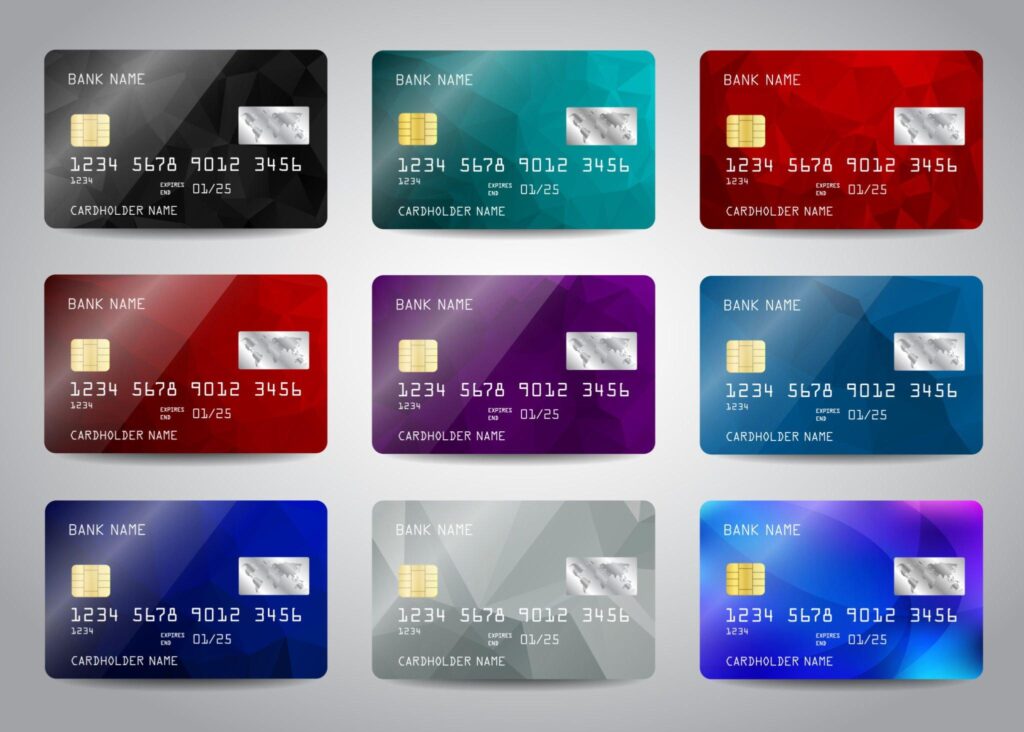The Credit Card Competition Act is a proposed bipartisan legislation in Congress. It is designed to challenge the enduring duopoly within the credit card sector. The bill aims to introduce increased competition into the card processing networks. Currently, the market is predominantly governed by only two major providers for an extended period.
The Credit Card Industry Today
The modern credit card landscape starkly reflects an entrenched duopoly controlling how America pays for goods and services.
Visa and Mastercard stand as twin titans astride the space, wielding their vast payment networks and card issuance partnerships as self-reinforcing competitive strengths that proved nearly impossible to meaningfully challenge over decades. Today they possess a staggering combined 84% market share in the United States based on total credit and debit purchase volume, a testament to their towering dominance in facilitating card-based transactions between merchants, banks, and consumers numbered in the hundreds of millions.
This tremendous market control and underlying infrastructure built up over half a century hinders the entry opportunities for potential competitors. The overwhelming presence of the two foremost payment processors shapes the space they helped define, the sheer scale and acceptance of their services representing a deeply rooted advantage for maintaining leadership amid limited threats from smaller rivals nibbling fringe opportunities. Their duopoly presence across physical and digital payments presents a formidable barrier to disruptors seeking to enter or reshape an arena in which these twin giants long ago cemented their prominent positions in how money changes hands. Their market strength persists through consistent innovation around their core offerings that buyers and sellers now depend upon.
Why Supporters Want More Competition
Backers of bills like the Credit Card Competition Act argue that more competition among processing networks could benefit merchants and consumers. More networks could put downward pressure on the swipe fees paid by merchants with each transaction. Lower costs could potentially get passed down to consumers. More networks could also encourage innovation in a highly consolidated space.
What the Credit Card Competition Act Would Do
The proposed law fundamentally aims to drive greater competition, and thus less concentrated control, around who facilitates credit card processing. Specifically, the legislation would mandate large banks include at least one additional viable payment network on issued cards beyond the present duopoly of Visa and Mastercard. This necessitates integrating another recognizable third-party processor to provide merchants alternate routing choices when accepting payments from customers, intensifying pricing and innovation pressures on the dominant leaders that presently face minimal threats to their entrenched positions. The most often cited additions encompass major present providers such as American Express, Discover, or PayPal/Venmo that could readily assume expanded roles under this vision.
The Credit Card Competition Act aims to compel the entrenched credit card behemoths Visa and Mastercard to offer merchants lower, competitive transaction fees for processing payments from customers, opening access by requiring large issuers to integrate additional rival networks onto standard bank cards.
Who Stands to Benefit the Most
Small and medium-sized business merchants will likely benefit the most, given they have little leverage to negotiate the fees charged by Visa and Mastercard currently. Most impacts of the bill would primarily be felt on the business-card transaction side. Consumers may see benefits over the long term, but they are likely to be marginal.

The Opposing Viewpoint of Critics
Of course, the major card networks are investing heavily to lobby against this bill. They argue it could increase costs for consumers rather than save them money. They say it could disrupt the reliability of the current system, and just add more bureaucracy around consumer choice.
Will the Bill Gain Traction?
The Credit Card Competition Act has some high-profile backers in Congress, including small business committee leaders from both parties. However, it also faces the full lobbying muscle of the major credit giants who want to block such legislation. Its fate is uncertain in a closely divided and partisan legislative environment.
The Outlook for Credit Card Innovation
The credit card industry exists as a longstanding duopoly, with Visa and Mastercard commanding substantial control of facilitating transactions between consumers and merchants. Proposed legislation like the Credit Card Competition Act seeks to compel large issuers to incorporate rival payment networks onto standard cards, introducing more Credit Card Competition and choices for routing purchases. Supporters argue fostering further Credit Card Competition reduces the swelling interchange fees paid by businesses with every sale, savings potentially benefiting customers. However, the dominant firms invest heavily to block such threats to their durability, claiming convoluted costs and bureaucracy from network changes absent tangible advantages.
While the bill’s fate stays murky given intense lobbying, technological trends like cryptocurrencies aspire to reshape payments regardless by offering decentralized alternatives to major cards. However extensive progress remains before blockchain networks overcome existing hindrances around security, scalability, and mass adoption enough to truly disrupt the longstanding credit titans. Though the outlook for meaningful competition brightens through various channels, Visa and Mastercard’s sheer magnitude ensures they remain deeply entrenched players in how money moves for the foreseeable future.
What is the main goal of the Credit Card Competition Act?
The main goal of the Credit Card Competition Act is to inject more competition into the credit card network market, ultimately aiming to lower costs for merchants and consumers. Currently, Visa and Mastercard control over 80% of general-purpose credit and debit card transaction volume. By requiring banks to allow transactions across their competing networks, the Credit Card Competition Act seeks to dilute Visa and Mastercard’s effective duopoly. More competition could reduce the $100 billion in card fees paid annually by merchants and customers.
How would the act increase competition among card networks?
The Credit Card Competition Act would require banks to enable transactions across at least two unaffiliated networks on their debit and credit cards. Currently, many cards can only run on a single network like Visa or Mastercard. By mandating at least two independent options per card, consumers and merchants would have more choices to route each transaction. This should dilute the overriding market control of the two dominant players Visa and Mastercard, introducing more competition and placing downward pressure on swipe fees that merchants pay to card issuers.
Which types of businesses stand to benefit the most?
The small businesses that accept credit card payments would likely benefit greatly from the Credit Card Competition Act. Currently, merchants pay between 1-3% of every transaction in card processing fees, which can add up for small retailers. By introducing more competition between the major card networks like Visa and Mastercard, swipe fees across debit and credit transactions could decrease. This would enable small businesses to retain a higher percentage of revenues or reduce prices. Increased network options could especially help Main Street shops and everyday spending categories like dining and groceries.
What are the main arguments from critics against the act?
The main arguments from critics against the Credit Card Competition Act focus on the investments card networks must make to continually enhance security and expand access globally. Visa and Mastercard say mandated interoperability spreads transactions across networks while most of the billions invested in infrastructure, fraud prevention, and new technology come from the top two dominant players. Opponents argue the Act may minimally reduce short-term fees but could discourage future innovation, ultimately harming consumer and merchant choice. They believe open competition already exists and government intervention risks unintended impacts.
What is the outlook for the act passing given the current Congressional environment?
The outlook for the Credit Card Competition Act passing in the current Congressional environment is unclear. While the Act has bipartisan political appeal with benefits for consumers and small businesses, the major card networks lobby heavily against proposals threatening their business models. A passage may hinge on protections for infrastructure investments. Votes favoring lower consumer prices may get tempered by fears of discouraged innovation if networks can’t reap sufficient rewards. Still, appetite exists to support competition from new disruptive payment technologies. Ultimately the Credit Card Competition Act’s fate depends on balancing these interests while addressing whether market forces already foster adequate choice.

